

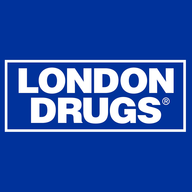
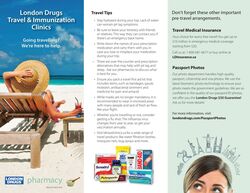
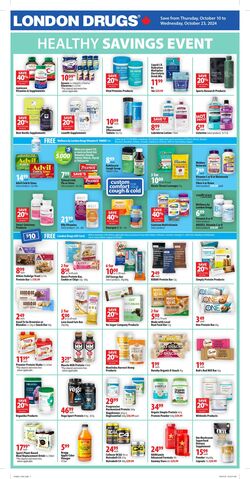
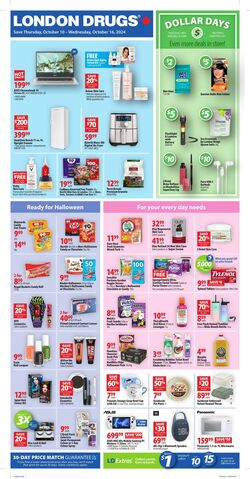
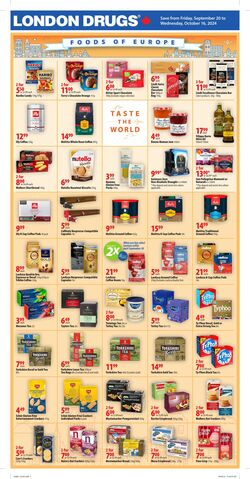
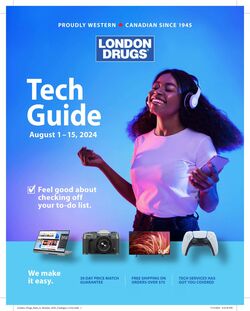
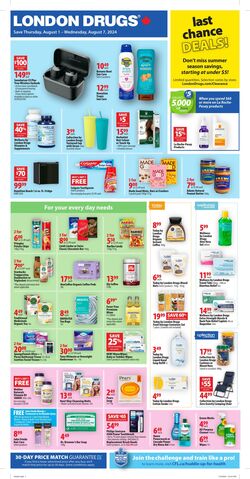
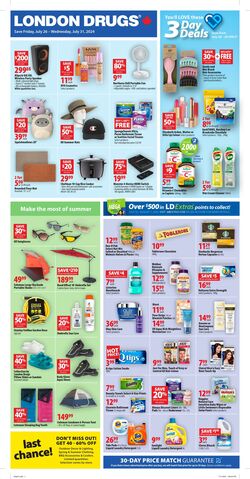
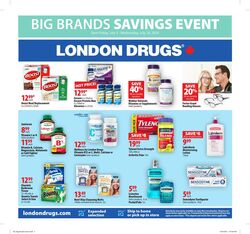
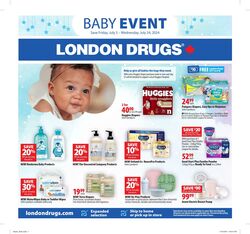
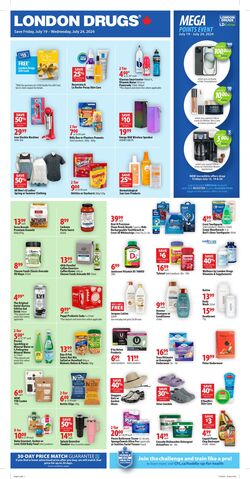
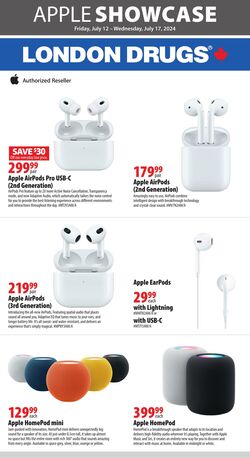
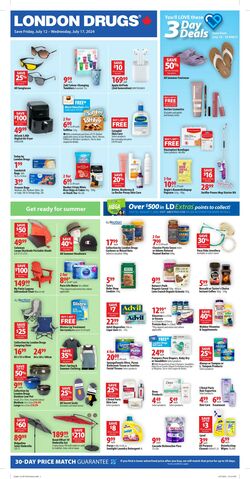
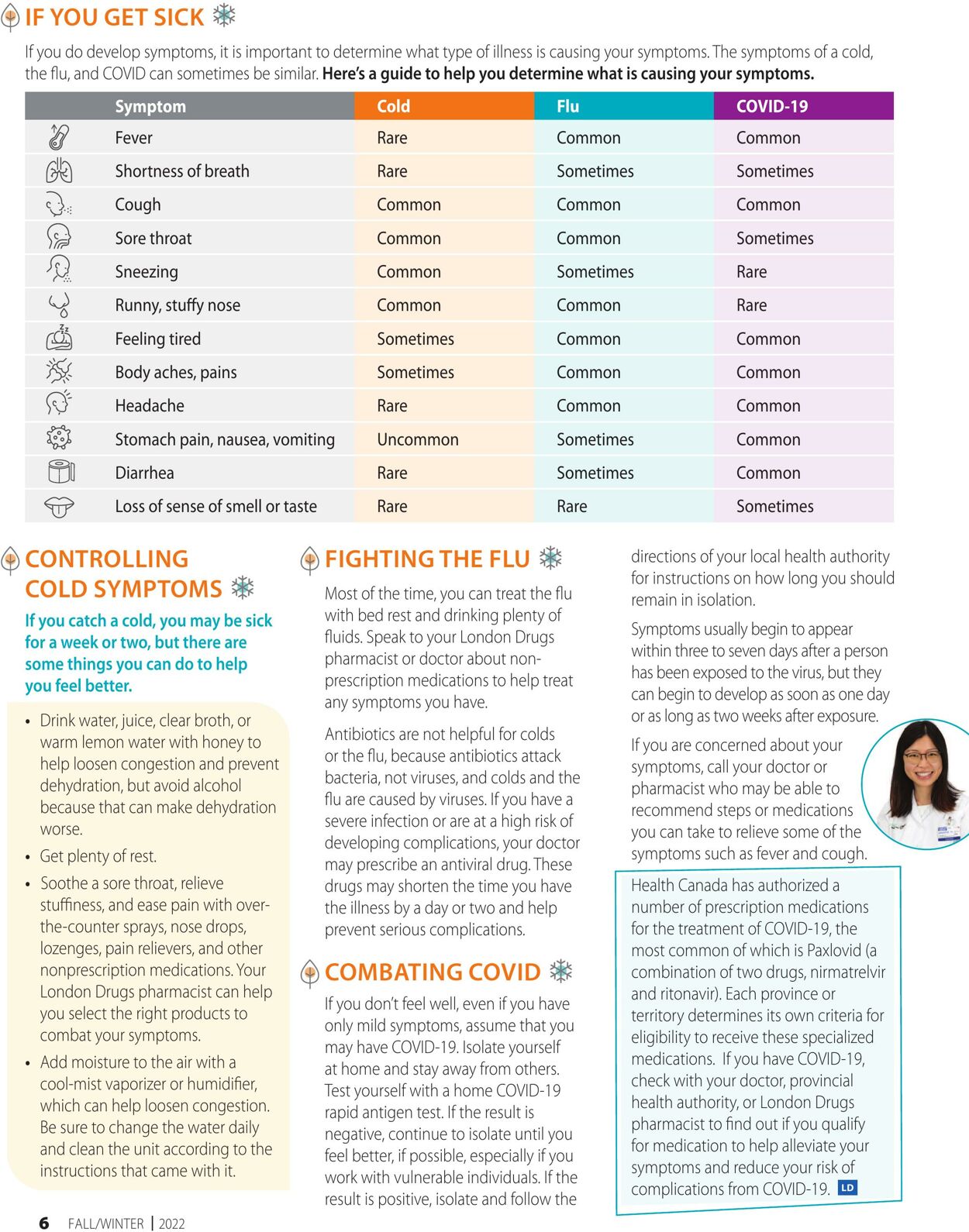
Products in this flyer
@ IF YOU GET SICK #& If you do develop symptoms, it is important to determine what type of illness is causing your symptoms. The symptoms of a cold, the flu, and COVID can sometimes be similar. Here’s a guide to help you determine what is causing your symptoms. SST Od Cold Flu COVID-19 @ Fever Rare Common Common ee Shortness of breath Rare Sometimes Sometimes ads Cough Common Common Common 2 Sore throat Common Common Sometimes SQ Sneezing Common Sometimes Rare & Runny, stuffy nose Common Common Rare G Feeling tired Sometimes Common Common x yh Body aches, pains Sometimes Common Common ey Headache Rare Common Common Stomach pain, nausea, vomiting Uncommon Sometimes Common il Diarrhea Rare Sometimes Common ©? Loss of sense of smell or taste Rare Rare Sometimes ® CONTROLLING ® FIGHTING THE FLU * directions of your local health authority COLD SYMPTOMS 3 If you catch a cold, you may be sick for a week or two, but there are some things you can do to help you feel better. Drink water, juice, clear broth, or warm lemon water with honey to help loosen congestion and prevent dehydration, but avoid alcohol because that can make dehydration worse. Get plenty of rest. Soothe a sore throat, relieve stuffiness, and ease pain with over- the-counter sprays, nose drops, lozenges, pain relievers, and other nonprescription medications. Your London Drugs pharmacist can help you select the right products to combat your symptoms. Add moisture to the air with a cool-mist vaporizer or humidifier, which can help loosen congestion. Be sure to change the water daily and clean the unit according to the instructions that came with it. 6 FALL/WINTER | 2022 Most of the time, you can treat the flu with bed rest and drinking plenty of fluids. Speak to your London Drugs pharmacist or doctor about non- prescription medications to help treat any symptoms you have. Antibiotics are not helpful for colds or the flu, because antibiotics attack bacteria, not viruses, and colds and the flu are caused by viruses. If you have a severe infection or are at a high risk of developing complications, your doctor may prescribe an antiviral drug. These drugs may shorten the time you have the illness by a day or two and help prevent serious complications. @ COMBATING COVID If you don't feel well, even if you have only mild symptoms, assume that you may have COVID-19. Isolate yourself at home and stay away from others. Test yourself with a home COVID-19 rapid antigen test. If the result is negative, continue to isolate until you feel better, if possible, especially if you work with vulnerable individuals. If the result is positive, isolate and follow the for instructions on how long you should remain in isolation. Symptoms usually begin to appear within three to seven days after a person has been exposed to the virus, but they can begin to develop as soon as one day oras long as two weeks after exposure. If you are concerned about your symptoms, call your doctor or pharmacist who may be able to recommend steps or medications you can take to relieve some of the symptoms such as fever and cough. Health Canada has authorized a number of prescription medications for the treatment of COVID-19, the most common of which is Paxlovid (a combination of two drugs, nirmatrelvir and ritonavir). Each province or territory determines its own criteria for eligibility to receive these specialized medications. If you have COVID-19, check with your doctor, provincial health authority, or London Drugs pharmacist to find out if you qualify for medication to help alleviate your symptoms and reduce your risk of complications from COVID-19.
| Name | Details |
|---|